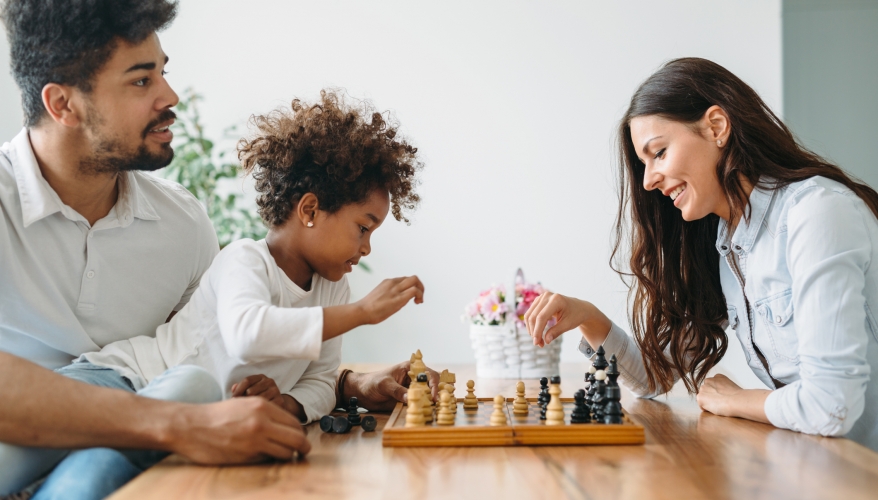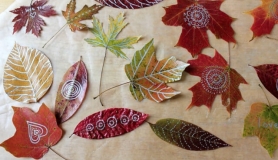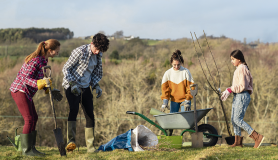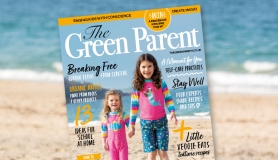When you think back to the traditions of your childhood, the customs that were repeated time and time again probably stand out in your memory. Big festivals and celebrations usually come with family rituals. When I was a child, bulging pillowcases were laid at the end of our beds on Christmas Eve. These were opened in our parents’ room, everyone piled onto the bed, paper everywhere. Then cups of tea, breakfast and more presents by the tree.
But it is not just the big occasions that follow well-formed patterns. There are rituals around many aspects of our lives. To be clear, I’m not just talking about habits. Habits are things we do without thinking, daily occurrences that happen without us noticing. A ritual is a pattern of behaviour or sequence of events that is important to you; something you look forward to and think back on. If you support a sports team, you may well have a ritual around going to watch matches: the clothes you wear, the way you travel, the items you bring with you, the songs you sing, the people you meet up with and the food you eat all play their part. What happens when it snows? Do you make a snowman, go sledging or make snow angels? Maybe you sit in the window with a hot chocolate and marshmallows. Do you have family film nights? Who sits where? Do you have popcorn and blankets?
Rituals help to build the expectation and anticipation around an event. The reason you look forward to certain occasions is because you have experienced the things that made it special before. You look forward to going to the cinema, not just because you’re excited about the film, but because you love the experience of sitting in the comfy seats with a tub of popcorn – even the trailers have their allure. Your family rituals may be completely unique, but even if they are common to many families, they are no less treasured. Visitors to the family are initiated into the rituals and, under your roof, must do it your way. Rituals signify importance and create a sense of belonging.
OUR FAMILY TRADITION
Many of our family rituals revolve around board gaming. Several times a week, the table is cleared and the games mat is brought out. The mat is just a plain black cloth, but vastly improves the game-playing experience in the eyes of the children. The mat is brushed clear of crumbs and fluff and perfectly lined up on the table. Someone organises drinks. Someone else suggests how we are going to select the game. During the game, phones go unanswered; nobody is multitasking. Packing up is communal and often lengthy as post-game analysis begins.
Nikki Bush, a parenting expert from South Africa, talks about the importance of creating a unique family brand. Your ‘brand’ is the essence of what makes your family special. Bush says that your family brand has three pillars: values, structure and togetherness. She says, ‘Rituals are concrete experiences which give them much more power than a lecture from parents about the family values. Children learn best through real experiences that get them personally involved.’
Regular board gaming as a family strengthens each of Bush’s three pillars: values, structure and togetherness. Moreover, it is easy to create rituals around playing board games. Each game can be thought of as a structured capsule experience, which can be modified and embellished to create something unique. Even if it’s not cool to show it, it is hard for anyone to resist a family ritual, so developing ways to give your game play a special edge will help to draw the family in. Repeated, normalised activities form strong shared family memories.
Think about it this way: if you were going to set up a sports team, what sorts of things would you do to make the players feel like they belong? Now, I’m not suggesting that you have to create a full kit (and away strip) for game nights, but we can learn from the huddle, the ritual handshakes, the mottos and the songs. These make players feel part of something special, something that matters. These shared experiences create shared memories, continuing to have an impact for many years.
THE GAME CHEST
Part of the importance of rituals is that they only happen in a certain situation: the restaurant you only go to on your birthday, the songs you only listen to when you’re running or the lucky socks you only wear when you have a big day at work. To create an instant ritual hit at game night, introduce the Game Chest. The Game Chest only comes out on game nights. The rest of the time, it stays visible on a shelf, as a reminder of the wonders of board gaming.
In an ideal world the Game Chest will be kept locked, except when board gaming. So you’ll need a lockable chest or box that is eye-catching and intriguing. You might find a pirate-style treasure chest at a car boot sale, or maybe an army-style lock box on eBay. You may even have something old and unusual hidden away in your loft. The Game Chest is the keeper of board-gaming delights and the centre of game-night rituals. If you are feeling creative, you could even start your game night with a hunt for the key. Give the family some clues about where it might be hiding: a riddle, a map of the house with an X marking the spot or a list of directions or instructions.
For a really quick set-up, put the key in the place of a common household item – the toothpaste, for example. Pick up the toothpaste and put that in place of something else, maybe a wooden spoon. Place the wooden spoon where you would normally find the toilet roll. Repeat as desired with other items. Then give the final item to the family for them to work backwards to find the key. Once the key has been discovered, the chest can be opened.
The items that live in the Game Chest are intended to make your game night special. You may have some individual game pawns that belong to each member of the family. These are the pieces that represent the player on the board in a game. My mum gets very upset if anyone else wants to be the iron in Monopoly – that is her game pawn. Game pawns don’t have to be restricted to use in one game only. Forget what is in the box; you can use your own personal game pawn in whatever game you want. Purchase some miniature figures, comb Etsy for custom meeples, go hunting in junk shops for small trinkets or charms, or you could even make your own designs and send them to a custom 3D-printer. If this sounds like too much trouble, raid the Monopoly box and choose your favourite classic player piece. Put them in a little bag and store them in the Game Chest.
Put the key items for your own game-night rituals in the chest. The chest is a focal point that builds excitement and anticipation. Even when it is not in use, make sure it lives in a special place in full view. It is worth putting some time and effort into it, as the Game Chest will most probably go down in family legend. Your children might replicate this with their own children – either creating their own chests or fighting over who the original should be handed down to. You will not just be creating a tradition for your children, but possibly for many generations to come.
Ellie has been obsessed with board games from an early age. Not only playing them, but tweaking the rules for fun and designing her own. Mother of two teenage boys, she believes games are a means to a happier, more social family unit
MORE INSPIRATION
READ Board Game Family by Ellie Dix
RETREAT Find a board gaming break for you and your family at thedarkimp.com
WHAT TO STORE IN YOUR GAMES CHEST
- Your game-night mascot (to sit on the table and watch the game).
- A gamemaster’s hat (as a signifier of this important role).
- An official scorebook (for keeping track of your plays).
- A game journal (for documenting the metagame).
- A visitor book (to collect comments and signatures from non-regulars).
- A selection of game pawns for visitors (so they feel included).
- Dice, playing cards, poker chips and dominoes (all your classic gaming staples).
- Dice shakers, dice trays or a dice tower (to improve the dice-rolling experience).
- Dry-wipe pens (to write on laminated score sheets).
- A calculator (for tricky maths).
- Spare timers (in case you want to impose a turn-taking time limit).
- A game mat (if you favour a smooth, slightly spongy gaming surface).
- A surprise (something unexpected – we have a tin of sardines in ours, although I’ve no idea why).
BOARD GAME RITUALS
To elevate board gaming to a fundamental part of the family identity, introduce some rituals. These rituals can be low-key and designed to make everyone happy and comfortable, or they could be quite elaborate and designed to increase delight, excitement and anticipation around playing the game. If you’re struggling to engage your children in board games, you might like to experiment with more unusual rituals that add an element of mystery to the activity, deliberately elevating the status of board gaming within the family.
Here are some rituals you could try:
- Always sit in the same places round the table. Perhaps create name cards to go in each place. You could even make these out of spare playing cards. Make place cards for frequent visitors too: grandparents, friends and neighbours.
- Choose a game-night theme tune. Play this tune when you are setting up and clearing away. ‘Games People Play’ by Joe South or ‘Play the Game’ by Queen, perhaps.
- Choose a special game-night food, drink or snack combo. Make this a special treat that you only have on game night. Virgin piña coladas and cheesy goldfish, anyone?
- Allocate special game-night roles – for example, bar person, official photographer, reporter, score person, banker… The roles can be written on counters and placed in a drawstring bag to add an element of randomness to the pre-gaming ritual.
- Develop some game-night catchphrases. Make up your own rather than stealing them from gameshows. You could keep a logbook with a tally chart to keep track of who manages to say the catchphrases at appropriate times in conversation each week.
- Choose a special item of clothing or an accessory that must be worn during game night. This could be an armband, a hat or possibly special medals.
- Find a mascot. The mascot should have a place at the table or on the table. The mascot could have its own pack of cards or set of dice and must, of course, wear appropriate game-night clothing.







